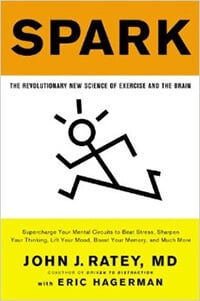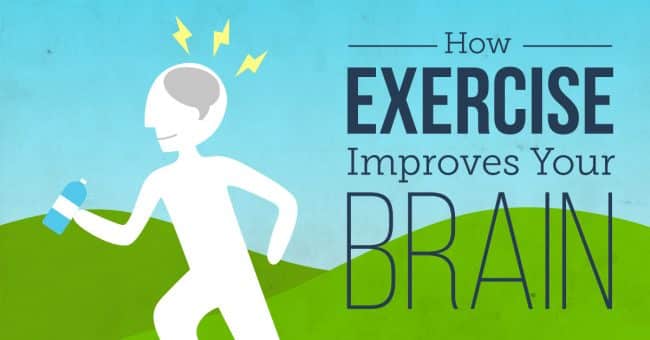 For the past few months, I’ve been getting my exercise done really early in the mornings.
For the past few months, I’ve been getting my exercise done really early in the mornings.
Since I took an ice skating class in January at the request of a friend of mine and then decided to pursue figure skating semi-seriously, every other weekday morning starts with an hour-long practice session at the rink. On the other days, I usually go to the gym.
Adopting a near-daily exercise routine has boosted my overall health level, but I’ve also realized that I’m more mentally alert after exercise as well. I do better work on the days I get my workout/practice session done than when I decide to skip it.
This fact has been re-affirmed to me more than once recently; there have been a few separate days in the last few weeks when I’ve woken up, said to myself,
“I’ve got way too much work today; I need to skip my workout and start in on it right away.”
…and then proceeded to get pretty much nothing done all day. It’s as if skipping my exercise turns me into a lethargic shell of my normally productive self. I find myself getting drowsy when I’m doing my daily reading, I’m prone to procrastination, and my creativity takes a nose-dive.
So it’s clear that, for me, exercise is a surefire productivity-booster. It’s almost like that drug NZT that Eddie Morra takes in the movie Limitless, except I don’t need to take a loan out from dangerous Russian loan sharks to get it.
I’m not alone here; pretty much everyone’s brain will benefit from exercise. The question is… why, exactly?
Regardless of what your views are on the nature of conscious thought – whether it’s an emergent property of purely physical systems or, as Descartes believed, a separate, non-physical phenomenon – it’s clear that the function of your physical brain is dependent on the well-being of the body.
In recent years, though, scientists have started to discover just how complex and multi-faceted that dependent link is – and just how essential a piece of the puzzle exercise is.
For instance, they’ve discovered how aerobic exercise can actually promote neurogenesis – the actual birth of new nerve cells. Previously, it was believed that we entered adolescence with all the nerve cells we’d ever have, and from there they’d slowly but surely die off without being replaced.
Scientists have also discovered that exercise regulates and optimizes levels of neurotransmitters such as noeprinephrine, dopamine, and seratonin, all of which play key roles in your brain’s ability to pay attention, stay motivated, and learn effectively.
Exercise has many other wide-ranging effects in the brain, and has been shown to be beneficial for people with a range of conditions – from chronic anxiety and depression to ADHD. It also helps us age more gracefully, and prevents the onset of diseases like Alzheimer’s.
One of the world’s foremost researchers on the subject of exercise and the brain is Dr. John Ratey, who is a professor of psychiatry at Harvard Medical School. He’s also my guest on the show today. In this episode, Dr. Ratey goes into detail about how exercise makes your brain stronger and more capable.
My hope is that, after listening to this episode, you’ll be equipped with a more technical understanding of exercise’s pivotal role in brain health – which, in turn, should give you more ammunition for fighting your brain’s lazy excuses and getting your daily exercise in 🙂
After the interview, I also do a bit of follow-up about my personal exercise routine and how I adopted it. Enjoy!
Featured Book
 Today’s episode digs into some of the research and discoveries that are covered in Dr. Ratey’s book Spark: The Revolutionary New Science of Exercise and the Brain, which I finished reading recently and absolutely loved.
Today’s episode digs into some of the research and discoveries that are covered in Dr. Ratey’s book Spark: The Revolutionary New Science of Exercise and the Brain, which I finished reading recently and absolutely loved.
This book was actually the first book I chose to tackle for my 3-month reading challenge, as I had a hunch that I’d find its insights useful in both my own life and for the content I create for you guys. Boy was I right.
You’ll learn about a good number of the ways that exercise benefits your brain in this episode, but I’d highly recommend digging into the book if you’d like to gain a better overall understanding. The book dives into detail about several specific topics, including:
- Learning
- Stress
- Anxiety
- Depression
- Attention (and ADHD)
- Addiction
- Aging
In addition, I found that it actually gave me a pretty good education about many of the brain’s different systems and how they link to specific parts of the body.
While reading, I learned about synapses, the different effects of specific neurotransmitters, the functions of specific regions of the brain (including the pre-frontal cortex, amygdala, hippocampus, hypothalmus, pituitary and adrenal glands, etc), and more.
I will say that’s it’s pretty packed with neuroscience and could be a bit challenging, but I think the rewards the book offers are more than worth it.
If you’d like to pick up a copy, you can support College Info Geek by using the link above!
Things mentioned in this episode:
- Discuss this episode in the community
- Dr. Ratey’s website
- 7 Minute Workout app (iPhone)
- 7 Minute Workout app (Android)
- Tabata app (iPhone)
- Tabata app (Android)
- BDNF
- Neurotransmitters
- HPA axis
- GABA
Want more cool stuff? You can find all sorts of great tools at my Resources page.
If you enjoyed this episode, subscribe to the podcast on iTunes! It’s easy, you’ll get new episodes automatically, and it also helps the show gain exposure 🙂 You can also leave a review!
Here’s an image for sharing this episode on social media:



